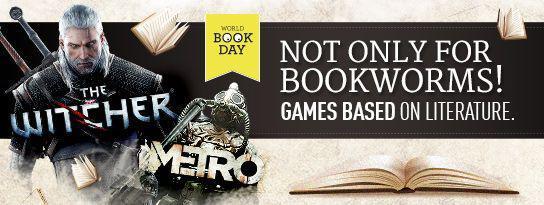Some video games are based on existing literature. In some cases this can give a game an advantage over the competition. Two recent top-selling games’ settings and characters can find their roots in pre-existing books.
The world of The Witcher series, by CD Projekt RED, is called “The Continent” and has been described as expansive and vast in all three incarnations of the series. This game was inspired by and heavily based on Andrzei Sapkowski’s book series of the same name.
FromSoftware’s Bloodborne features the city of Yharnam, a disturbing yet gorgeous gothic town cursed by its dependency on blood. As the player progresses through the city, it becomes more and more obvious that Hidetaka Miyazaki drew inspiration from one author in particular. Various characters that the player encounters in the city of Yharnam reference the “Old Gods” and have a desire to find eyes in order to gain “insight.” It is very clear that Miyazaki has borrowed from the works of H.P Lovecraft, whose horror novels created the idea of “Old Gods” such as Cthulu.
Even though these games were able to harness the potential of their sources’ story and setting, some cases exist where video game adaptations have fallen flat.
In 2010, Visceral Games attempted to create their own visual representation of one of the most famous epic poems of all time: Dante’s Inferno. Sadly the game received mixed reviews. While featuring creative and at times gruesome level design, it was criticized for using a combat system that was almost identical to the God of War series. Additionally many players had issues with the game repeatedly re-using enemies and running out of steam as it approached endgame.

George R.R Martin’s popular series A Song of Ice and Fire has seen two attempts at video game adaptation in 2011 and 2012. However, neither of them has been able to capture Westeros as well as the TV series. At best, both Game of Thrones and A Game of Thrones: Genesis received reviews of 59/100 from critics. On the other hand, Telltale’s recent episodic adaptation of A Song of Ice and Fire has been well received, and Bigpoint and Artplant have announced that a MMORPG called Game of Thrones: Seven Kingdoms is being developed. So hope continues that Westeros will be satisfactorily represented on a digital medium.
What enables a video game to fully live up to its literary counterpart? Is it originality? Possibly consistency with the text? Or is it something else? Let us not forget that to fulfill the requirements for a decent video game while also handling the task of representing these fictional worlds in a manner faithful to its source can be extremely challenging.
What do you think? Please leave a comment below, and remember: for all your video game needs, check out GameSkinny.com.







Published: Jun 10, 2015 11:06 am